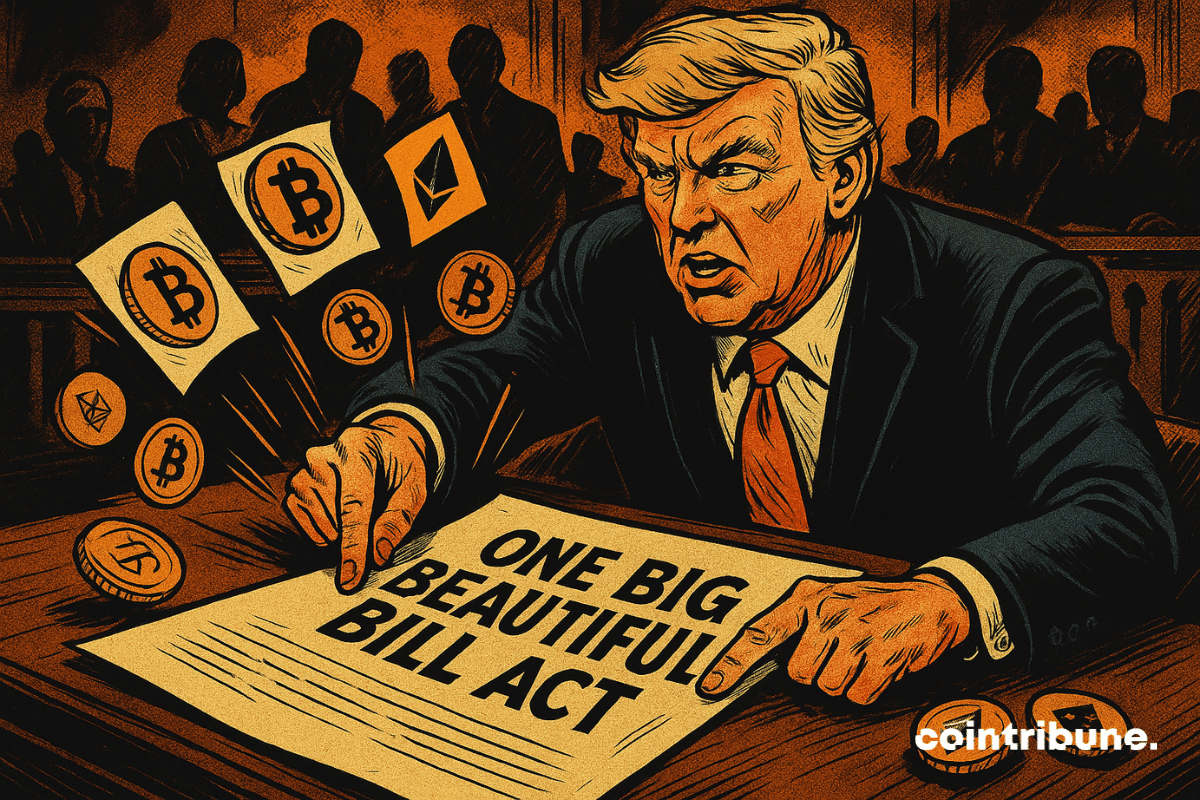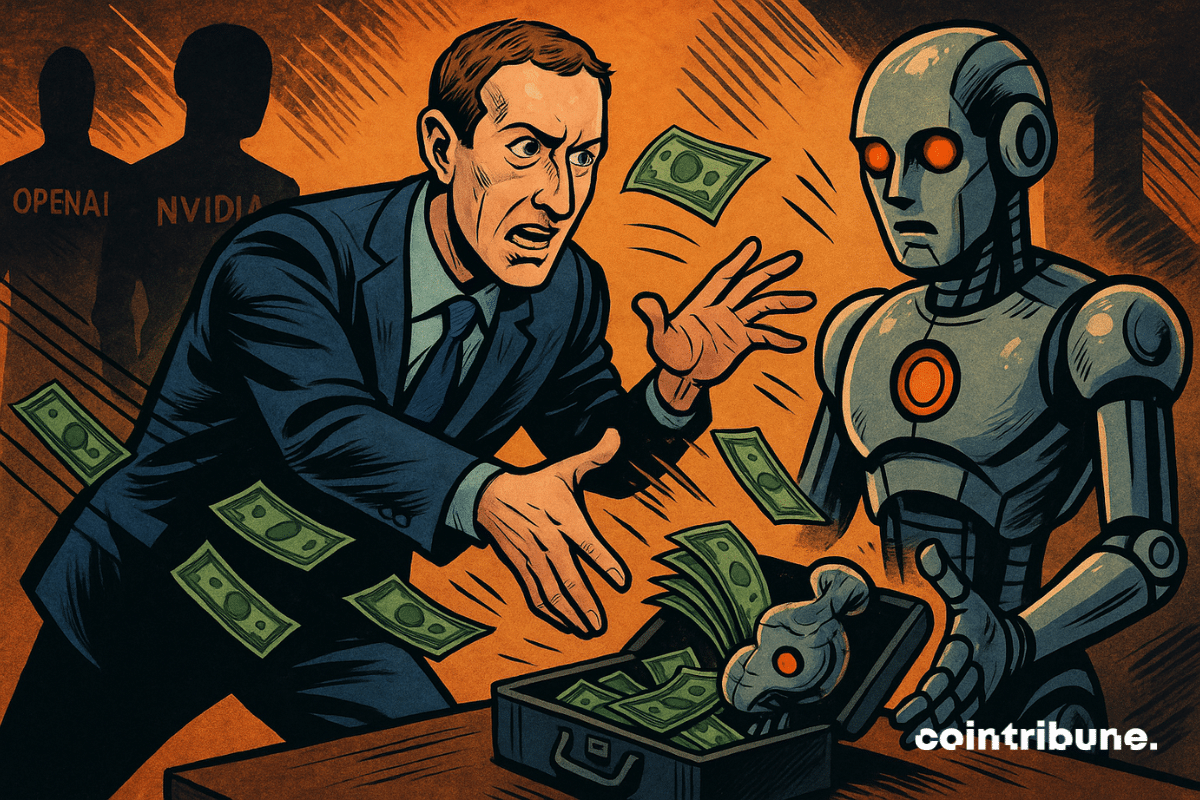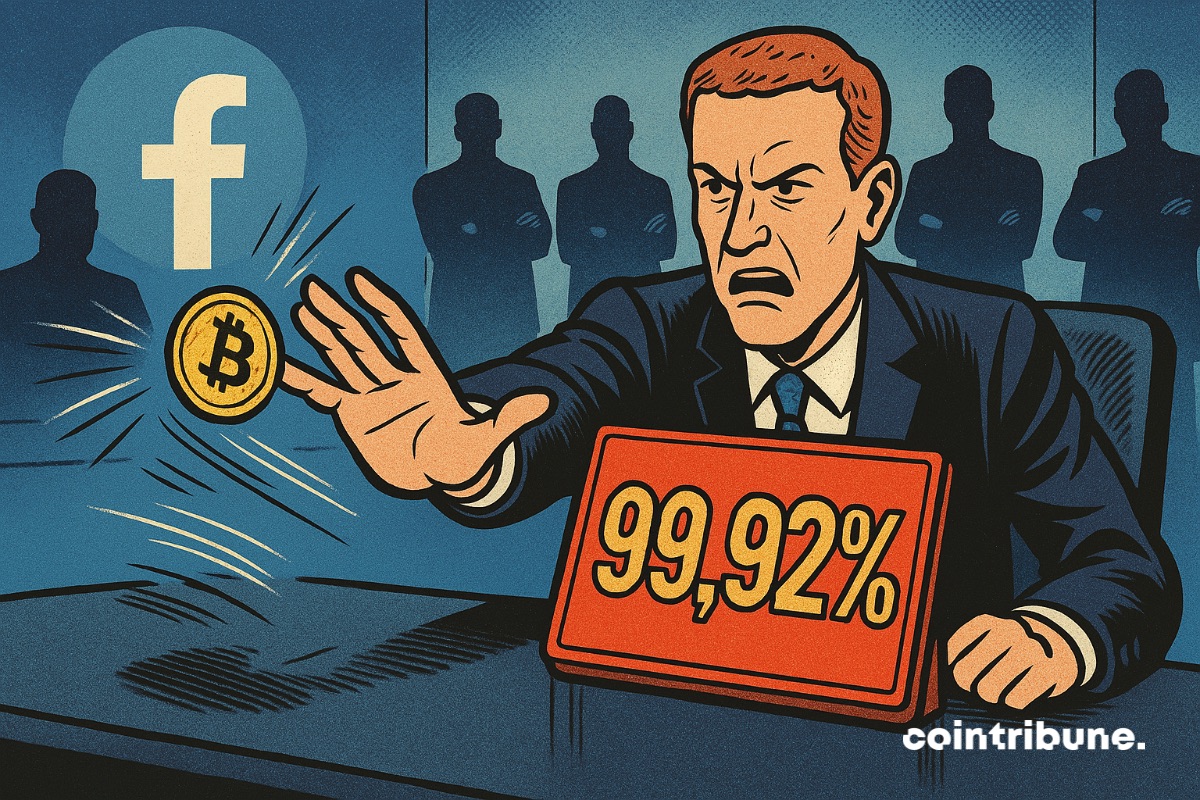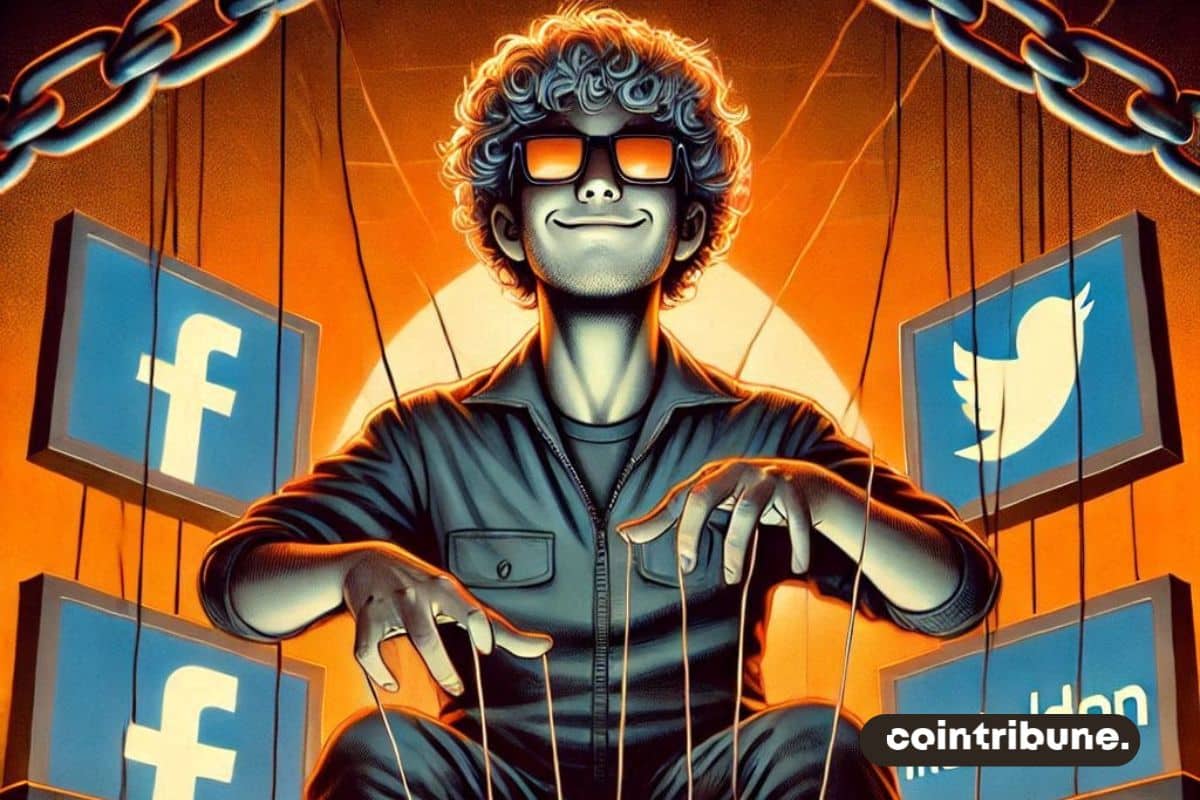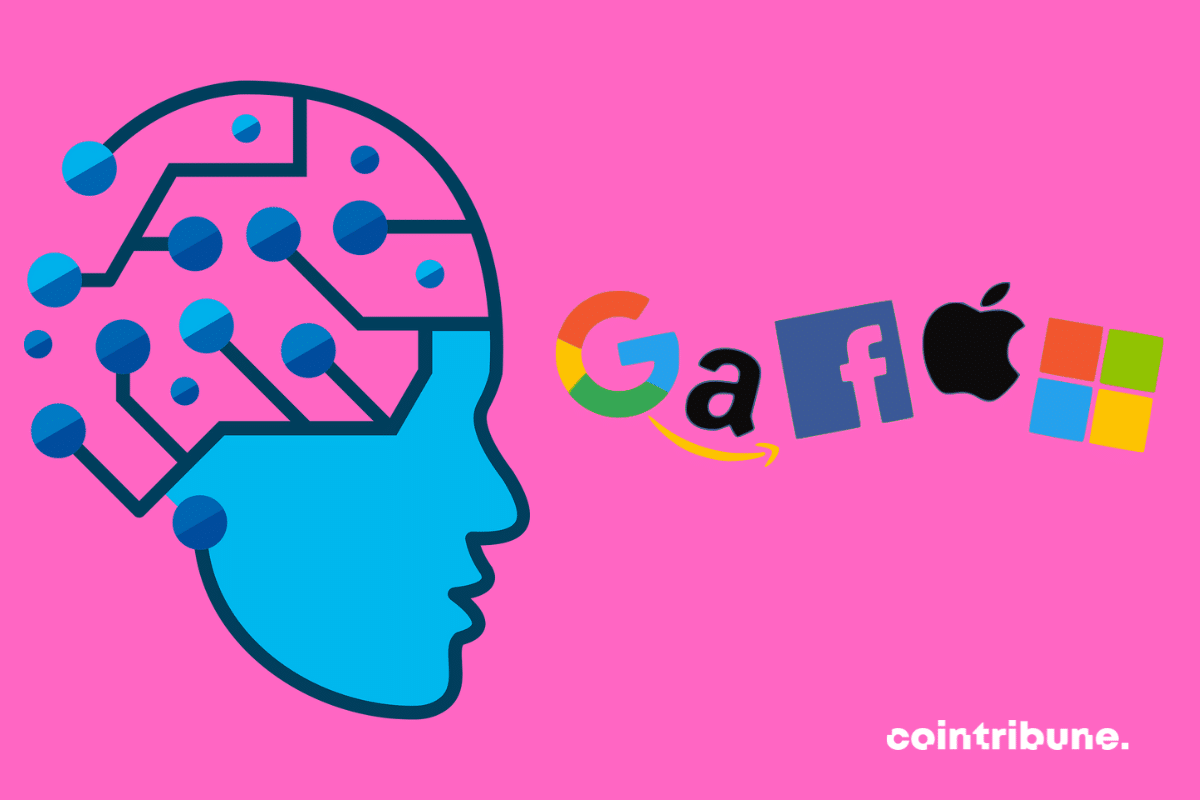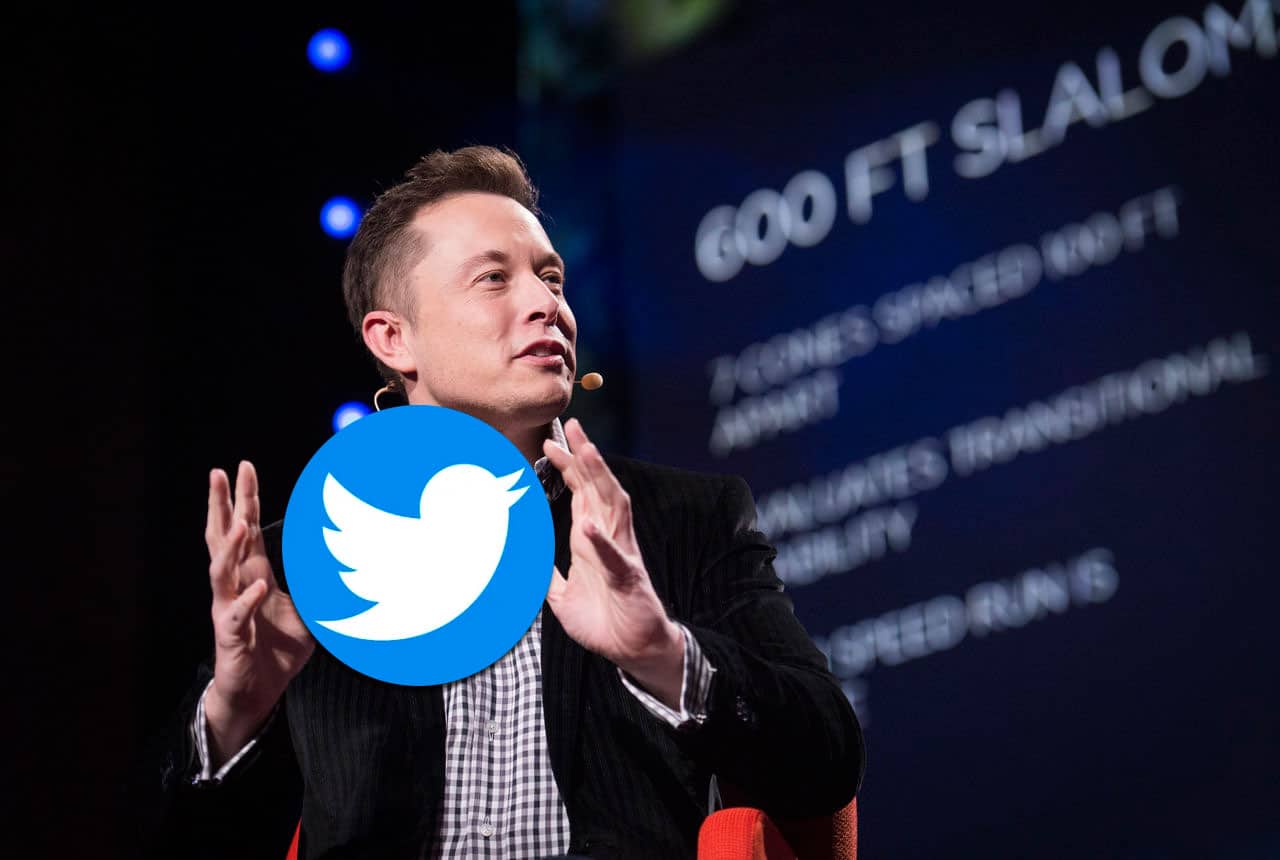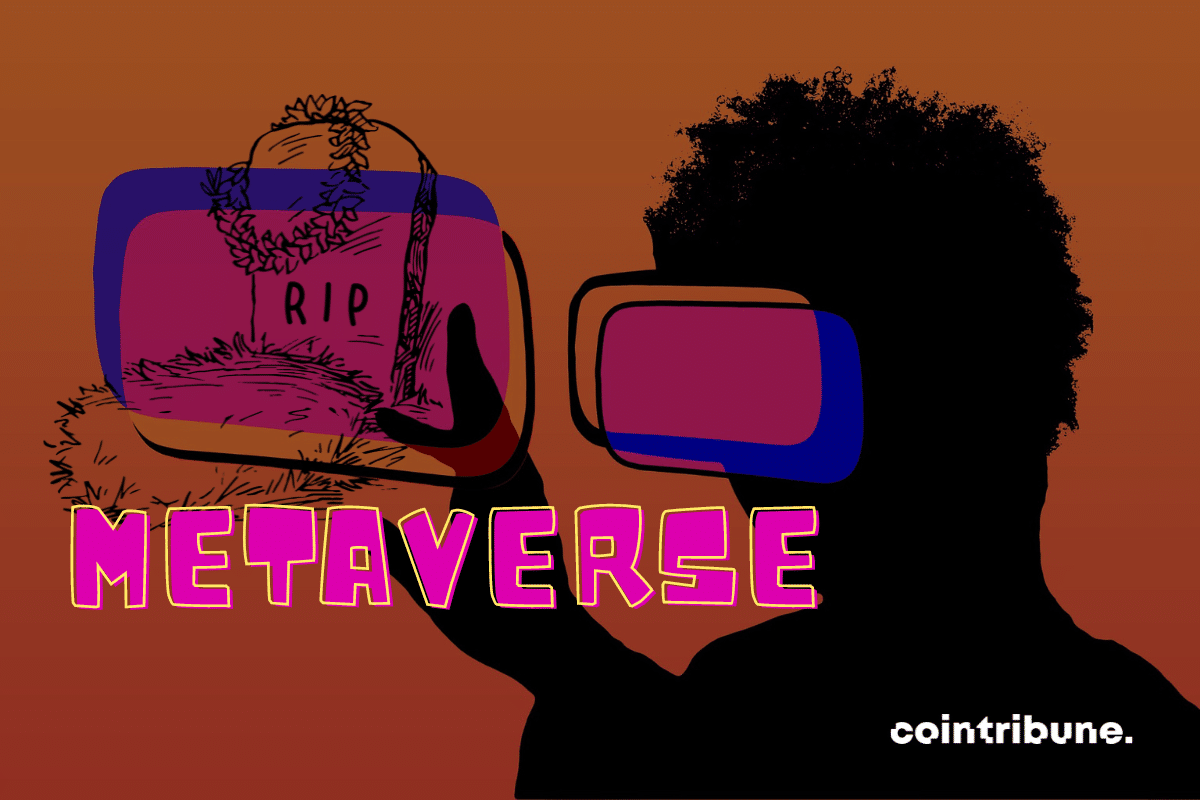The XPL token from Plasma is going through a turbulent period. After a sharp drop in its price and a wave of rumors targeting its team, CEO Paul Faecks stepped forward to defend the project and try to reassure investors.
Trump exults, Warren rises up, Lummis screams into the wilderness... The Senate votes, cuts through, carefully avoids crypto, and signs a XXL law, as silent as it is deafening for digital miners.
Zuckerberg senses the right opportunity: he spends 15 billion to tame AI, recruits top minds, locks down data... and acquires a 28-year-old genius, Wang.
Meta crushes a bitcoin proposal at 99.92%. A stifled rebellion, a locked empire. While others bet on BTC, Zuckerberg holds back. Masterstroke or missed opportunity? Dive into the murky strategy of the tech giant.
Three years after the failure of Diem, Meta returns to the crypto universe. This time, the company is exploring the use of stablecoins to pay creators on its platforms. By betting on USDC or USDT, it is embracing a more flexible approach focused on adoption, stability, and global financial inclusion.
Artificial intelligence feeds on data. But how far can it draw from our digital lives? The answer is taking a new turn in Europe. Meta has just obtained approval from European regulators to train its AI models on public content shared by its users. A decision that raises as many technological hopes as ethical questions.
Meta's artificial intelligence is finally available in Europe after a long tug-of-war with regulators. Meta AI, already integrated into the group's applications in the United States, is gradually rolling out in France and 40 other European countries. It is now appearing on WhatsApp, Instagram, Facebook, and Messenger, profoundly changing the interaction of users with Mark Zuckerberg’s group platforms.
Meta, the parent company of Facebook, Instagram, and Threads, recently announced that it will not end its fact-checking program outside the United States. This decision comes after Meta informed the Brazilian government that the removal of this feature would only apply to the United States for the time being.
Less than a week after proclaiming a commitment to freedom of expression, Meta, the parent company of Facebook and Instagram, is accused of censoring links to competing decentralized platforms. According to a report by 404 Media, Facebook removed links leading to Pixelfed, a decentralized competitor to Instagram, labeling them as "spam." What is really going on?
"In an age of universal deceit, telling the truth is a revolutionary act." This phrase by Orwell, taken from 1984, resonates strongly in our digital age and illustrates the struggle against censorship. Growing centralization threatens freedom of speech and individual sovereignty. States and institutions exploit censorship to control discourse, limiting innovation and diversity of ideas. Bitcoin stands as a powerful alternative to these drifts. Its decentralized architecture protects transactions and information from any attempts at control. By ensuring user autonomy, Bitcoin upholds the fundamental principles of a free and resilient civilization. Resisting censorship is crucial to preserving progress, openness, and creativity. In a world where censorship mechanisms proliferate, Bitcoin embodies a trust technology. This fight for freedom goes beyond economic issues: it lies at the heart of a genuine civilizational battle.
Discover how the Digital Markets Act (DMA) is redefining the balance of power between Big Tech and users.
It's hard to beat Google (Alphabet), Apple, Facebook (Meta), Amazon, and Microsoft in the field of generative AI. The latest statistics confirm that the biggest VC (Venture Capital) investors are far behind the GAFAM. Details !
Twitter's exposure on Google plummets as Elon Musk announces temporary limits. New strategy or not, what's the point? While these questions are pertinent, only one attracts the attention of the crypto community. What will happen to communication within the ecosystem?
Ed Zitron, CEO of EZPR, believes that the metaverse is dead. However, Epic Games CEO Tim Sweeney disagrees, stating that nearly 600 million monthly users are happily immersed in the virtual world right now.

